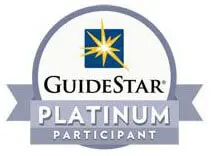caring for children and families. mind. body. soul.

Taylor Family Foster Care
Our Little Academy
Keystone Mental Health
Our Mission and Values
OUR MISSION: Our Little Haven is relentlessly committed to providing early intervention services for children and families. Our community of professional caregivers create a safe, secure, and healing environment for those impacted by abuse, neglect, and mental or behavioral health needs. We make the hurting stop, the healing begin, and the love last, one family at a time.
Guided by our belief in a Loving God . . .
- We place the well-being of the child as our first and most important priority
- We value the people who care for the children
- We serve our families with love, care, and compassion
- We are dedicated to the highest quality of service and professional expertise
- We provide a loving, caring and nurturing environment
- We embody a passion for our purpose
- We are invitational, not expectational - we invite the community to help serve.
Who We Are . . .
We are Caring for Children and Families. Mind. Body. Soul.
We serve the young child impacted by abuse, neglect, and mental or behavioral health needs through a suite of programs all designed to offer and facilitate early intervention. We offer both physical and mental health treatment to children during their formative years (ages birth through ten), coupled with treatment services for the entire client family.
The Cookie Jar
Because the services provided by Our Little Haven are deeply personal, emotional, and complex, we often use the image of a Cookie Jar to help explain what we do - and why early intervention matters so much.
We believe that when we’re born, God gives each of us an empty Cookie Jar. With every nurturing moment - a hug, a kind word, a sense of safety, a guiding adult, a lesson learned, or a positive interaction - we get a cookie added to our jar. Over time, these cookies become the building blocks of resilience, trust, and well-being.
During the earliest years of life, what we call the formative years, the Cookie Jar is wide open. Children are constantly collecting the emotional “ingredients” they need to grow strong. The cookies placed in those first years shape how they grow, connect, and cope with the world. While healing and growth are always possible, it's much harder to fill an empty jar later on. That’s why starting early makes all the difference.
Many of the children and families we serve come to us with Cookie Jars that are still waiting to be filled. Trauma, instability, challenges, and loss may have interrupted that process. But it’s never too late to start adding in what’s been missing.
Through mental and behavioral health care, individualized treatment services, and family-centered support, Our Little Haven helps fill those Cookie Jars - while also helping children and families learn how to keep filling them for years to come.
You can help. Help us fill Cookie Jars with safety, support, and love - one child, one family, one cookie at a time.
Our Little Haven and numerous studies show us that by treating those children experiencing needs stemming from abuse, neglect, unhealthy mental and behavioral issues, at the earliest age possible, allows for treatment that is life long, better for the child, better for the family, better for the community and uses fewer resources. Similar to a building, our lives are based on the need for a strong foundation. If our building’s foundation is weak there will be a catastrophic event – nobody knows when, but there will be a problem endangering those in and around the building. Similarly, if our life is based on a weak foundation, there will be a catastrophic event harming those in and around the devastated person while creating a life-long dependency on the already saturated welfare system. It becomes clear that we can “fix” the problem while the foundation is still being built (during the formative years) or we can wait until the building is done and then try to repair the foundation using precious resources to move and restore the damaged building. Our Little Haven has the ability and willingness to fix the problem early, alleviating the potential of an unfulfilled life.




